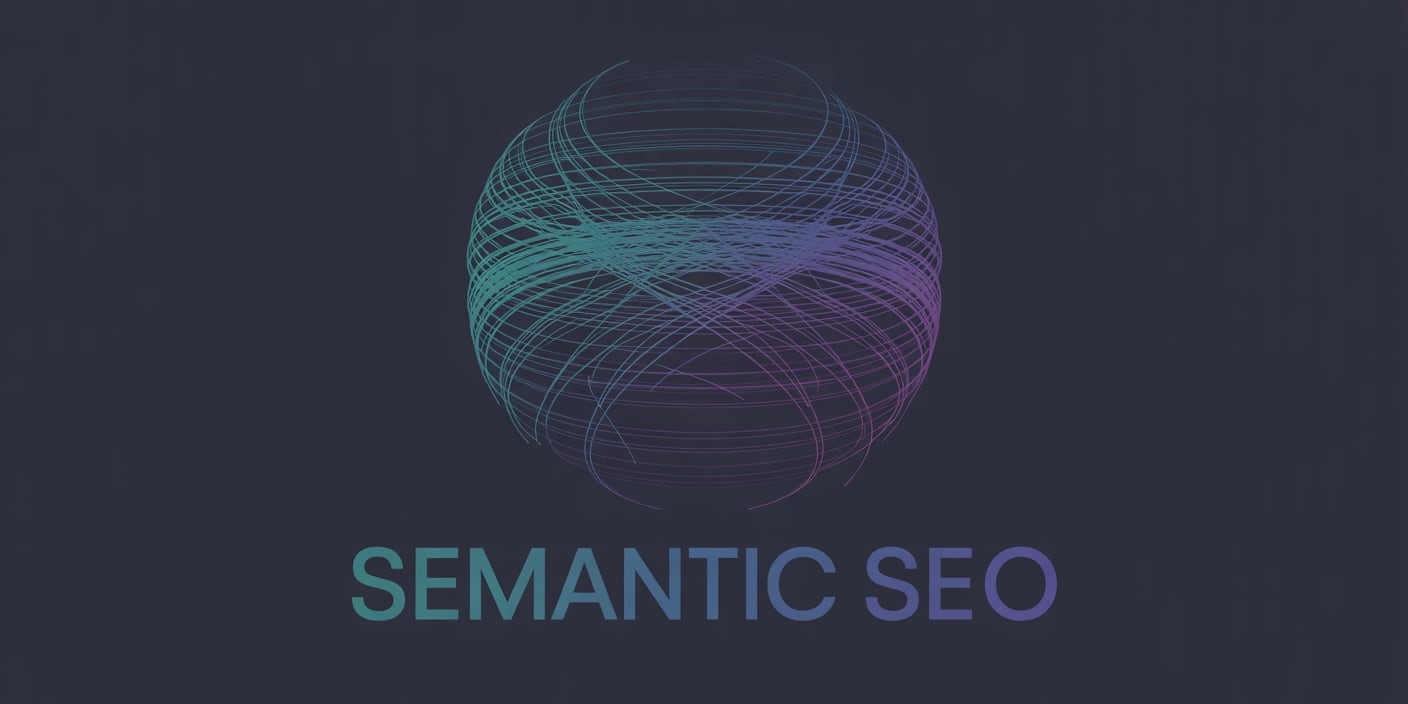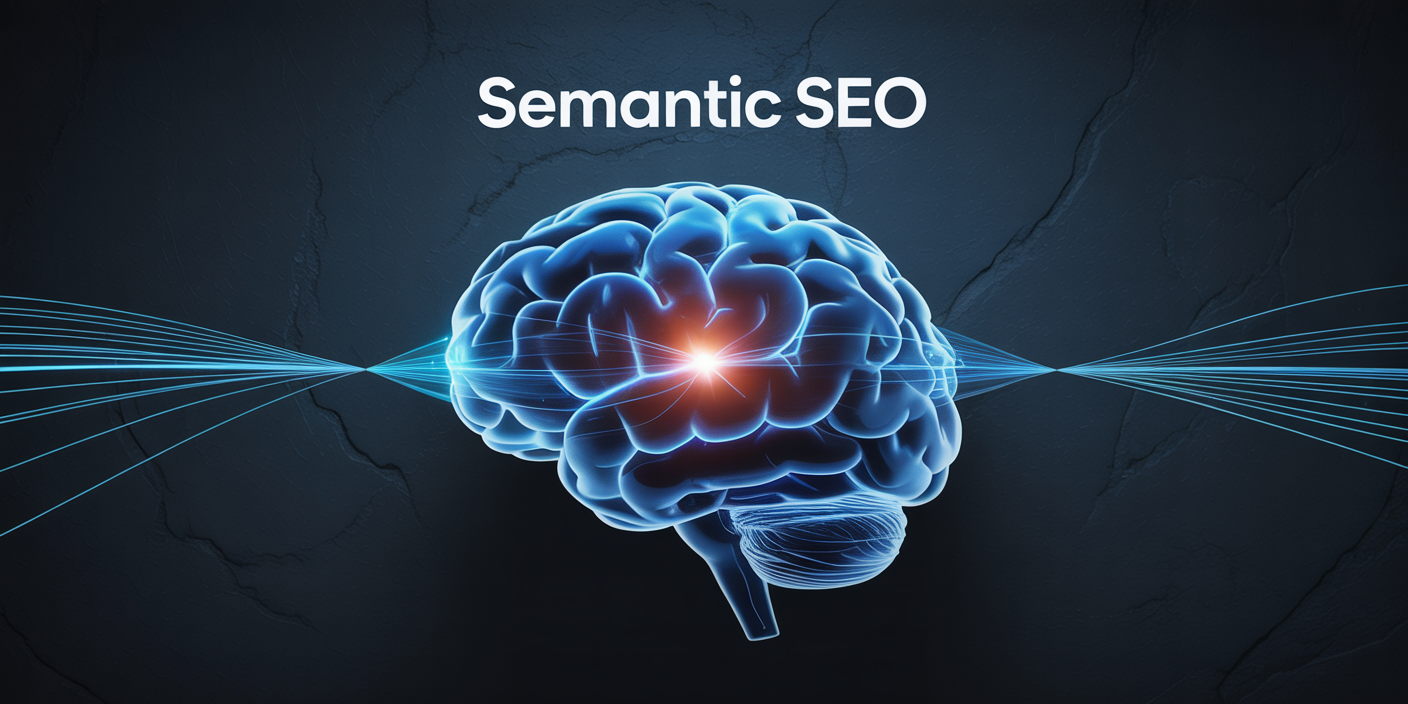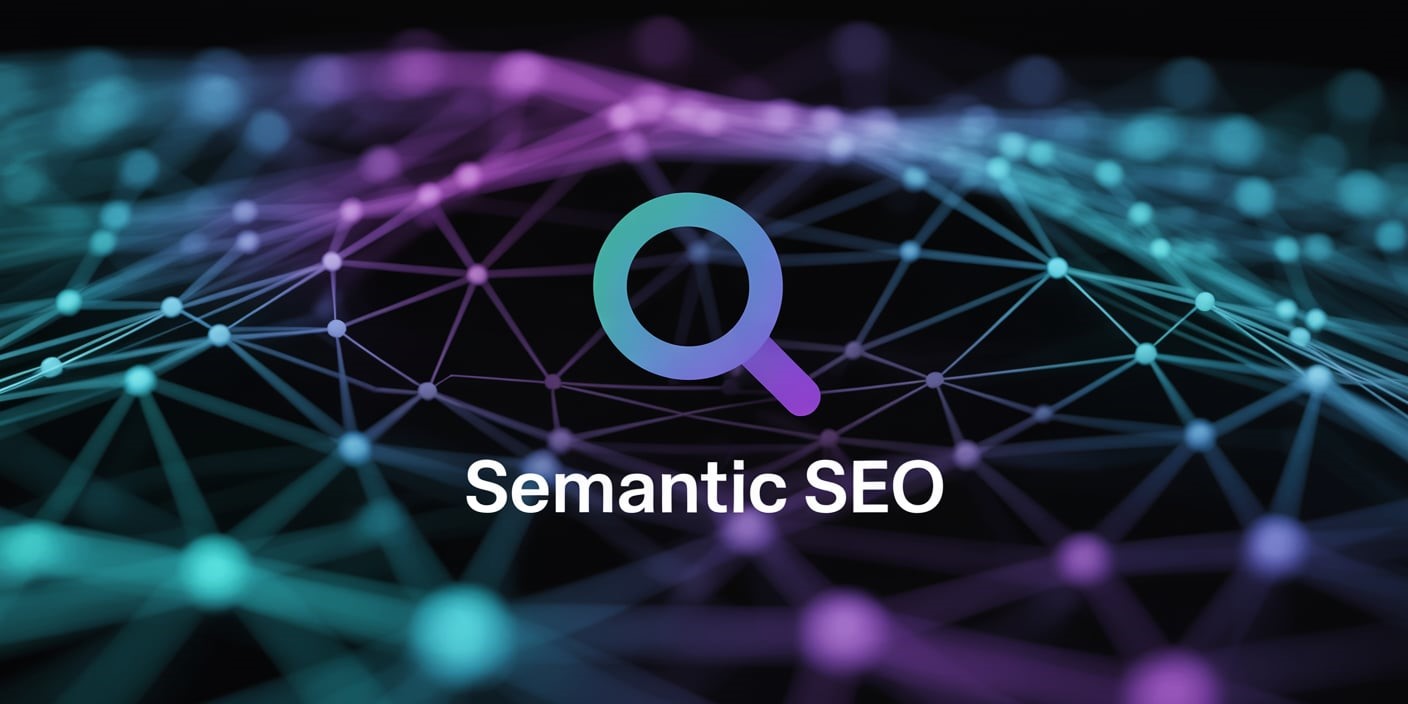The search landscape has fundamentally transformed.
While traditional SEO focuses on matching keywords, modern search engines now understand concepts, entities, and relationships between information.
Our semantic SEO services build your digital presence as a recognised entity within search engines' knowledge graph, creating sustainable visibility that withstands algorithm updates while connecting you with high-intent visitors.
Modern search algorithms have evolved far beyond simple keyword matching. Google's BERT, MUM, and SGE technologies now interpret content contextually, recognising entities and their relationships rather than just matching search terms.
This represents a fundamental shift in how search engines understand and rank content.

The Entity-Based Paradigm Shift
Search engines now maintain sophisticated knowledge graphs—vast databases of entities (people, places, concepts, organizations) and their relationships. When your business is recognized as a relevant entity with strong contextual connections, you gain sustainable visibility that transcends keyword variations and withstands algorithm updates.
From Keywords to Knowledge Graph
| Traditional SEO | Semantic SEO |
|---|---|
| Focuses on keyword density and placement | Establishes entity relationships and contextual relevance |
| Optimizes for specific search queries | Optimizes for topical authority and entity recognition |
| Vulnerable to algorithm updates | Creates sustainable visibility through entity recognition |
| Relies on exact match optimization | Understands semantic relationships between topics |
| Primarily text-based optimization | Integrates structured data for entity clarity |
The Data Speaks for Itself
Establish Your Brand as a Recognized Authority
In today's search landscape, being recognized as a relevant entity with clear associations is more powerful than ranking for individual keywords. Our entity-based optimization creates a digital identity that search engines inherently trust, establishing your business as an authoritative entity within your field.
Our Entity Optimization Process:
Entity Extraction & Analysis We conduct comprehensive analysis to identify how search engines currently recognize your brand and associated entities, uncovering gaps and opportunities in your entity profile.
Competitive Entity Positioning We analyze how competitors are positioned within the knowledge graph and develop strategies to establish stronger entity signals that differentiate your business.
Entity Relationship Mapping We create strategic connections between your brand and related entities (topics, products, people, places) that strengthen your relevance for valuable searches.
Brand Entity Enhancement We implement techniques to reinforce your brand as a primary entity with clear defining attributes that search engines can confidently display in knowledge panels and rich results.
Entity Optimization Deliverables:

Position Your Business in Search Engines' Neural Network
The knowledge graph—Google's vast database of entities and relationships—influences everything from featured snippets to voice search results. Our knowledge graph integration strategies help your business secure representation within this critical search infrastructure.
How We Integrate Your Business:
Knowledge Graph Analysis We assess your current knowledge graph presence, identify representation gaps, and analyze how information about your entity is organized in search systems.
Entity Property Enhancement We strengthen the defining properties of your business entity through strategic content development and structured data implementation that clarifies your entity attributes.
Connection Development We create and reinforce connections between your business entity and other relevant entities in your industry, establishing clear semantic relationships.
Authority Signals We implement techniques that send authoritative entity signals through strategic content development, quality backlinks, and consistent entity references.
Knowledge Graph Integration Benefits:
Content Crafted for How Search Engines Actually Read
Modern search algorithms use Natural Language Processing (NLP) to understand content semantically. Our NLP-driven content strategies leverage these same technologies to create content that perfectly aligns with how search engines interpret information.
Our NLP Content Development Process:
Semantic Intent Analysis We use advanced NLP tools to analyze search intent patterns, identifying the concepts, entities, and relationships that search engines associate with valuable queries in your field.
SERP Linguistics Pattern Recognition We examine the linguistic patterns of top-performing content for your target topics, identifying the semantic structures that search engines favor.
Entity-Rich Content Creation We develop strategically structured content that clearly communicates entity relationships, reinforces topic associations, and establishes contextual relevance.
NLP Optimization Refinement We continually analyze how search engines interpret your content and refine it to strengthen entity recognition and semantic understanding.
NLP Content Strategy Deliverables:
Building a Website Structure that Communicates Meaning
Your website's information architecture sends powerful signals about the relationships between topics and entities. Our semantic architecture strategies create a content structure that clearly communicates entity relationships to search engines.
Our Semantic Architecture Approach:
Topic Modeling & Clustering We map your content ecosystem using advanced topic modeling to identify natural semantic relationships between content areas.
Entity Hierarchy Development We create a structured content hierarchy that clearly signals primary and supporting entities, establishing clear topical authority signals.
Internal Entity Reference System We implement a strategic internal linking framework that reinforces entity relationships through contextual anchor text and logical content connections.
Semantic Navigation Implementation We develop navigation structures that communicate clear topic relationships and entity hierarchies to both users and search algorithms.
Semantic Architecture Benefits:
Schema markup provides explicit signals about entities and their attributes that help search engines confidently identify and represent your content. Our comprehensive schema strategy implements the precise structured data types that strengthen your entity presence.

Types of Schema We Implement:
Our Schema Implementation Process:
Schema Opportunity Analysis We conduct a comprehensive audit of your digital presence to identify all potential schema implementation opportunities across your website.
Custom Schema Development We develop tailored schema markup that precisely communicates your specific entity relationships and attributes.
Technical Implementation Our team implements schema markup using the most appropriate methods for your site architecture, ensuring proper integration without conflicts.
Testing & Validation We rigorously test all schema implementations using Google's testing tools and monitor search console for proper recognition.
Performance Monitoring We track schema performance through rich result appearance, click-through rates, and entity recognition improvements.
Schema Implementation Example:
{
"@context": "https://schema.org",
"@type": "ProfessionalService",
"name": "Client Name",
"url": "https://www.example.com",
"logo": "https://www.example.com/logo.png",
"image": "https://www.example.com/image.jpg",
"description": "Comprehensive description with entity references",
"hasOfferCatalog": {
"@type": "OfferCatalog",
"name": "Services Catalog",
"itemListElement": [
{
"@type": "Service",
"name": "Service Name",
"description": "Service description with entity references"
}
]
},
"address": {
"@type": "PostalAddress",
"streetAddress": "123 Street Name",
"addressLocality": "City",
"postalCode": "Postcode",
"addressCountry": "UK"
}
}
Schema Implementation Benefits:
Our schema strategy goes beyond basic implementation by creating a comprehensive structured data ecosystem that reinforces entity relationships across your entire digital presence, sending consistent signals that strengthen your semantic authority.
We begin with a thorough assessment of your current entity recognition profile, analyzing how search engines currently perceive and categorize your business. Our proprietary entity analysis tools identify:
This foundational analysis provides a clear picture of your current semantic position and identifies the highest-impact opportunities for enhancement.

Based on our audit findings, we develop a comprehensive semantic strategy tailored to your specific entity profile and business objectives. This strategic roadmap includes:
This strategic plan serves as our implementation guide, ensuring all semantic optimization activities align with your business goals and target high-impact opportunities.
With our strategy defined, we implement the technical infrastructure needed to communicate clear entity signals to search engines:
This technical foundation creates the infrastructure necessary for search engines to clearly understand your entity relationships and attributes.
Next, we build a semantically rich content ecosystem that reinforces your entity positioning and creates contextual relevance:
Each piece of content is strategically developed to strengthen specific entity associations and build topical authority in your key areas of expertise.
Semantic search continues to evolve, requiring ongoing monitoring and refinement of your entity presence:
Our continuous monitoring ensures your semantic foundation strengthens over time and adapts to evolving search technologies.
How is semantic SEO different from traditional SEO?
Traditional SEO focuses primarily on keyword matching—ensuring your content contains specific search terms people use. Semantic SEO focuses instead on building entity recognition and contextual relationships that help search engines understand what your content is truly about. Rather than just matching keywords, semantic SEO establishes your business as a recognized entity with clear attributes and relationships to other relevant entities in your field. This approach creates more sustainable visibility that isn't dependent on exact keyword matching.
How long does it take to see results from semantic SEO?
Initial improvements typically begin appearing within 4-8 weeks as search engines recognize enhanced entity signals and structured data. However, the full benefits of semantic SEO compound over time, with significant visibility improvements occurring within 3-6 months as your entity authority and contextual relevance strengthen. The most valuable aspect of semantic SEO is its sustainability—once established, entity recognition tends to persist through algorithm updates, providing more stable long-term visibility.
Do I need to completely rebuild my website for semantic SEO?
No, semantic SEO can be implemented progressively on your existing website. We typically begin with technical enhancements like schema markup and semantic HTML improvements, followed by strategic content development and internal linking optimization. While some structural changes may be recommended to optimize your semantic architecture, these can typically be implemented without a complete rebuild. Our approach adapts to your current infrastructure while methodically enhancing its semantic foundation.
How does entity-based optimization affect my content strategy?
Entity-based optimization transforms your content strategy from keyword-focused to relationship-focused. Rather than simply targeting individual keywords, your content will be structured to establish and reinforce specific entity relationships. This includes creating comprehensive topic clusters, developing content that clearly defines entity attributes, and building contextual connections between related topics. The result is a more cohesive content ecosystem that builds genuine topical authority rather than simply targeting keyword variations.
What industries benefit most from semantic SEO?
While all industries benefit from semantic SEO, those with complex products, services, or information see particularly strong results. Professional services (legal, financial, medical), e-commerce with extensive product catalogs, educational institutions, specialized manufacturers, and multi-location businesses tend to see dramatic improvements. Additionally, industries where establishing expertise and authority is crucial gain significant advantages from the entity recognition and knowledge graph integration aspects of semantic SEO.
How do you measure success in semantic SEO?
We track a comprehensive set of metrics beyond traditional rankings, including:
Together, these metrics provide a holistic view of your growing semantic authority and its business impact.
Will semantic SEO still be relevant with AI search advancements?
Semantic SEO is actually becoming more critical with AI search advancements, not less. AI-powered search systems like Google's SGE rely heavily on entity understanding and contextual relationships to generate responses. Businesses with strong semantic foundations are more likely to be referenced as authoritative sources in AI-generated answers. As search becomes more conversational and intent-focused, the semantic relationships and entity clarity that semantic SEO establishes become even more valuable.
How does mobile search factor into semantic SEO strategies?
Mobile search is deeply integrated with semantic SEO strategies. Mobile interfaces have limited space, making rich results and knowledge panels—outcomes of strong semantic optimization—particularly valuable. Additionally, voice search, predominantly used on mobile devices, relies heavily on entity recognition and conversational language patterns. Our semantic approach naturally optimizes for these mobile-specific search behaviors by establishing clear entity relationships that help search engines confidently display your business in space-constrained mobile results.
Discover how our semantic SEO approach can establish your business as a recognized authority in search results while connecting you with high-intent visitors actively seeking your products or services.
Our semantic optimisation has helped businesses achieve:
Limited Availability: We accept only 3 new semantic optimisation clients monthly to ensure our team delivers exceptional results for every partner.
Your data privacy is guaranteed. We never share your information with third parties.